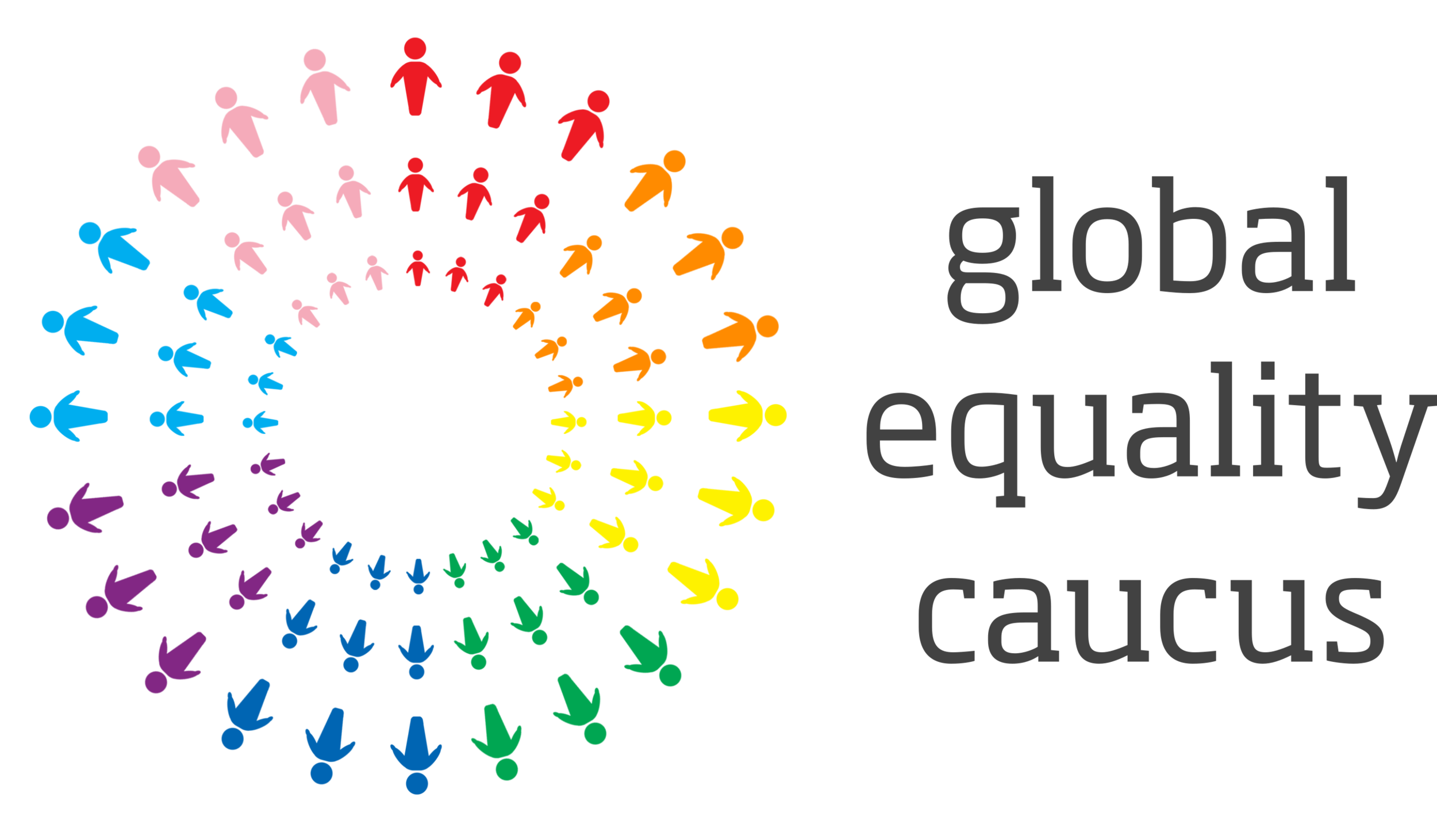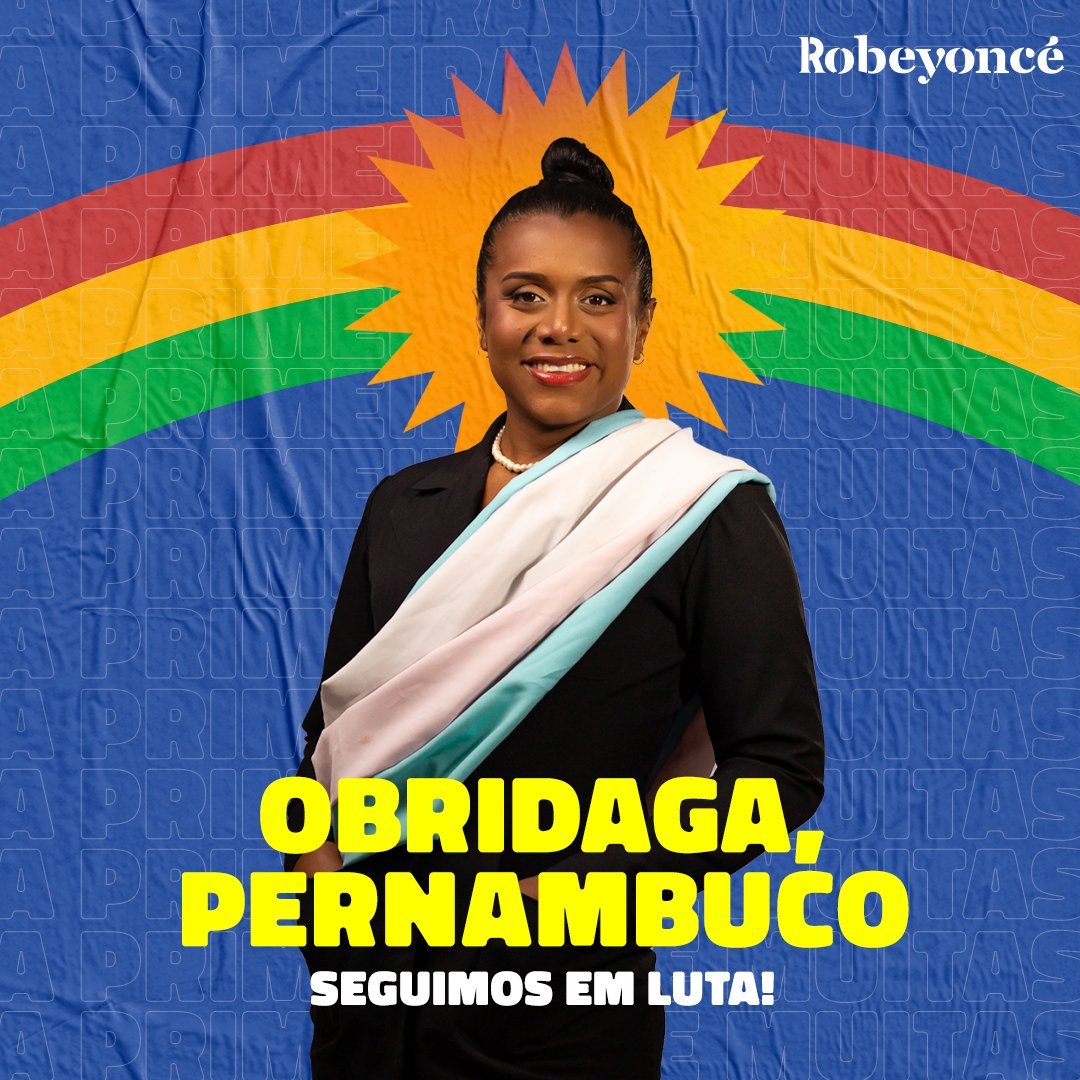Life as a Legislator: Robeyoncé, leading the way
Robeyoncé Lima, Pernambuco's first trans lawyer, was a state co-deputy with Juntas 2018-2023. As the first trans woman elected to state office in Pernambuco, her tenure has been marked by the fight for rights and against the oppressions of black people and the LGBTQIA+ community. She is currently vice president of the Truth Commission on Black Slavery by the OAB of Pernambuco, and was a candidate for federal deputy in the 2022 general elections.
She is a founder of the Global Equality Caucus, launched at the United Nations on 21 June 2019, where she signed the New York Declaration with a delegation of elected officials from all corners of the world. We spoke to her at the end of 2022 to reflect on her life as a legislator.
As the first black trans lawmaker in Pernambuco, how has this impacted politics?
Look, we already do politics from the moment we came into the world, right? We have a very serious problem today, which is the issue of LGBT-phobia, machismo, sexism, racism, misogyny - and we already do politics in our daily life, even without being in the institutional politics itself. We already do politics with our own body, our body is political. But sometimes it is also important to occupy strategic, institutional and decision-making spaces for the continuous improvement of our living conditions, then combining that with a project that includes our own narrative, so we can build our own history and not let others build it for us.
There comes a situation in which we do not want other people to speak for us, we need the possibility to talk about ourselves and there is no other way to achieve it than to try to be in these decision-making spaces and spaces in which we are often excluded. Visibility is important - we suffer political violence in different ways and it is an oppressive environment for us, but we will not give up because we deserve to be in these places of debate, because we understand that representativeness will only exist once we have been talking about ourselves and without having others speaking in our name.
WHAT DO YOU THINK HAS BEEN THE MOST SIGNIFICANT THING ABOUT YOUR TENURE AS A LEGISLATOR?
Look, I think the very fact that I'm a black trans MP and I'm in this space is a very big representation for many of us who up until this point thought that was impossible. A short time ago you would have never said that there would be a black trans person in parliament.
And it is only now in 2022 that we have trans parliamentarians elected in the National Congress, right? Starting next year we will have trans federal MPs that we never had before, and only in 2018 we had state MPs. So this is a space to move forward, but the fact that there are only a few people representing such a vulnerable group shows us that we still have a lot to do.
For example, when are we going to have a robust parliamentary group of trans people, black people, indigenous people, LGBT people in these spaces…? We are still far away. Unfortunately this is a reality but we continue to advance.
With a new government elected in Brazil, what do you see for the future?
It is a Brazil that will bring us new hope.
We have lived the last 4 years with a federal government that was precarious in terms of public policy, a federal government where the former president denied the severity of the pandemic.
The election of President Lula brings positivity, understanding that it will not be easy to repair a country that suffered for 4 years under weakened public institutions. But we can and must continue to build a country, until we achieve the eradication of hunger and poverty, until we have a basic income as a permanent policy for people without work or for people in vulnerable conditions, until we eradicate hate speech. There is a very high expectation of renewal, and I am sure that Brazil will improve with this new management.
Argentina appointed a special envoy on LGBT+ RIGHTS in 2022. Would a Brazilian special envoy help to establish Brazil as a leader on these issues?
I think that would be crucial.
We still face a difficult struggle to secure LGBT+ rights. We still have a very strong resistance in the National Congress and in the Chamber of Deputies. Having two trans parliamentarians elected in the National Congress - Duda Salabert of Minas Gerais, and Erika Hilton of São Paulo - will help to give more visibility to these issues.
We have won a lot in the courts but little in way of legislation, so since rights are not safeguarded in legislation we resort to justice to guarantee them. But there is a risk that these can reversed, as has happened with abortion in the United States.
The issue of LGBTIQ+ citizenship is precarious, unfortunately. Despite the optimism it is important to point out that Brazil has the highest murder rate of trans people in the world.
Robeyoncé Lima and Erika Hilton. Photo: courtesy of Robeyoncé.
Did you face any discrimination in your campaign for national congress?
Physically I did not suffer any aggression, although there are always aggressions through social networks and online hate speeches. Pernambuco is a stronghold for President Lula so there is more sympathy for our cause here, but that doesn't mean we're protected from each and every attack. Yes there are attacks, but in my specific case the vast majority were more virtual attacks.
Of course, I am also in a situation where I have the opportunity to have a team with me, the opportunity to build a structure as a parliamentarian and candidate, in which transphobia reached me with more difficulty. So, I'm a trans person but I'm not as exposed, for example, as a vulnerable trans person who is here in the middle of the city at night at risk of attack. There is this violence, there is this exposure, but in my situation violence doesn’t reach me in quantitative terms like other people.
Robeyoncé at the launch of the Global Equality Caucus, 2019.
AS A FOUNDING MEMBER OF THE GLOBAL EQUALITY CAUCUS, WHY DO YOU THINK THE NETWORK MATTERS?
On a more global level, I still notice a certain isolation of Brazil relative to other countries, mainly in the context of Latin America, as if Brazil was walking in a different direction than the other Latin American countries. I believe Lula will help to repair this.
I believe that we can, through international cooperation, of mutual aid between nations, mainly in the context of the Global South, evolve to a point where we reduce inequalities between North and South. Not overnight, but that cooperation is important in that sense of exchanging experiences, what can we learn from other lawmakers in other countries that we can work to achieve here?
FINALLY, DO YOU HAVE ANY ADVICE FOR THE 21 LGBTIQ + PEOPLE ELECTED AT THE DIFFERENT LEVELS OF GOVERNMENT?
What advice I would give… wow! This is the hardest question of all! Well, I think the first thing is not to be afraid. It is likely these elected LGBT people will suffer attempts at intimidation, violence... Verbal violence, political violence, institutional violence, sometimes there will even be situations of physical violence... But you must take advantage of this space of expression once chosen to denounce this violence, do not give up.
Let them know that we are very happy, even me - although I fell just short of the quotient for Congress, I am very happy to know that Duda Salabert and Erika Hilton will be there representing many other trans girls. And that we can continue this firm and strong dialogue with the LGBT movement so that we can advance more and more in public policies.




